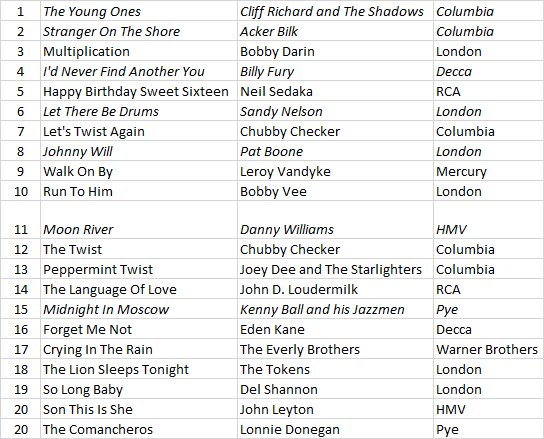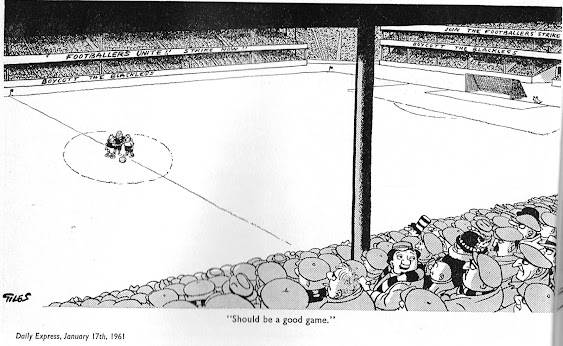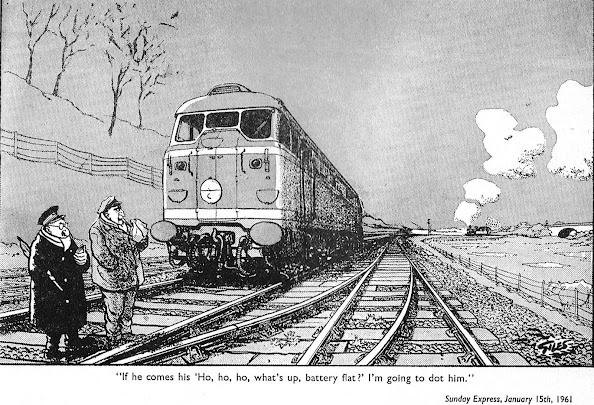At #3 is Bobby Darin's 'Multiplication':
Giles cartoon for this week: police recruitment
- 'The East German government instituted conscription into its armed forces, which formerly had been filled by volunteers. Western sources speculated that the East Germans had waited until the completion of the Berlin Wall before announcing the draft.'
- 'Brian Epstein made a verbal contract with the four members of The Beatles, becoming their manager in return for receiving up to 25 percent of their gross earnings.'
- 'An attempt by the United States, to launch five satellites into orbit from the same rocket, failed when the final stage of the Thor-Able-Star rocket failed to provide sufficient thrust to break the pull of gravity. Falling into the Gulf of Mexico "well south of Cuba" were the 80 foot rocket and the satellites SR-4, Injun II, Lofti II, Secor and Surcal, worth $3,500,000 altogether.'
- 'With the publication of a January 15 decree of the Supreme Soviet, the Soviet Union changed all remaining street names and place names honoring Vyacheslav Molotov, Lazar Kaganovich, Georgi Malenkov, and Kliment Voroshilov two months after the five aides to Joseph Stalin had been denounced by the Soviet Communist Party.[87] The Azerbaijan SSR city of Molotov would become Oktyabrkend, and the city of Perm had reverted to its name after Molotov's ouster in 1957; Voroshilovgrad was renamed Luhansk and Voroshilov in the far east became Ussuriysk.'
- 'The planned 7:30 am launch of Lt. Col. John H. Glenn, Jr. was postponed after the countdown clock stopped 20 minutes before liftoff. Glenn had been in the capsule since 5:10 am and was prepared to become the first U.S. astronaut to orbit the Earth, while much of the nation watched live coverage. After technical difficulties halted the countdown, the skies became overcast with thick cloud cover, and the mission was scrubbed at 9:20 am.'
- 'At a major conference in Beijing, Liu Shaoqi, President of the People's Republic of China, criticized the "Great Leap Forward" economic policies of Party Chairman Mao Zedong. "People do not have enough food, clothes or other essentials... agricultural output has dropped tremendously," Liu told the assembly, adding "There is not only no Great Leap Forward, but a great deal of falling backward." Chairman Mao made a rare self-criticism three days later, and eventually took revenge on Liu, who disappeared in 1968 and reportedly died in 1969.'










